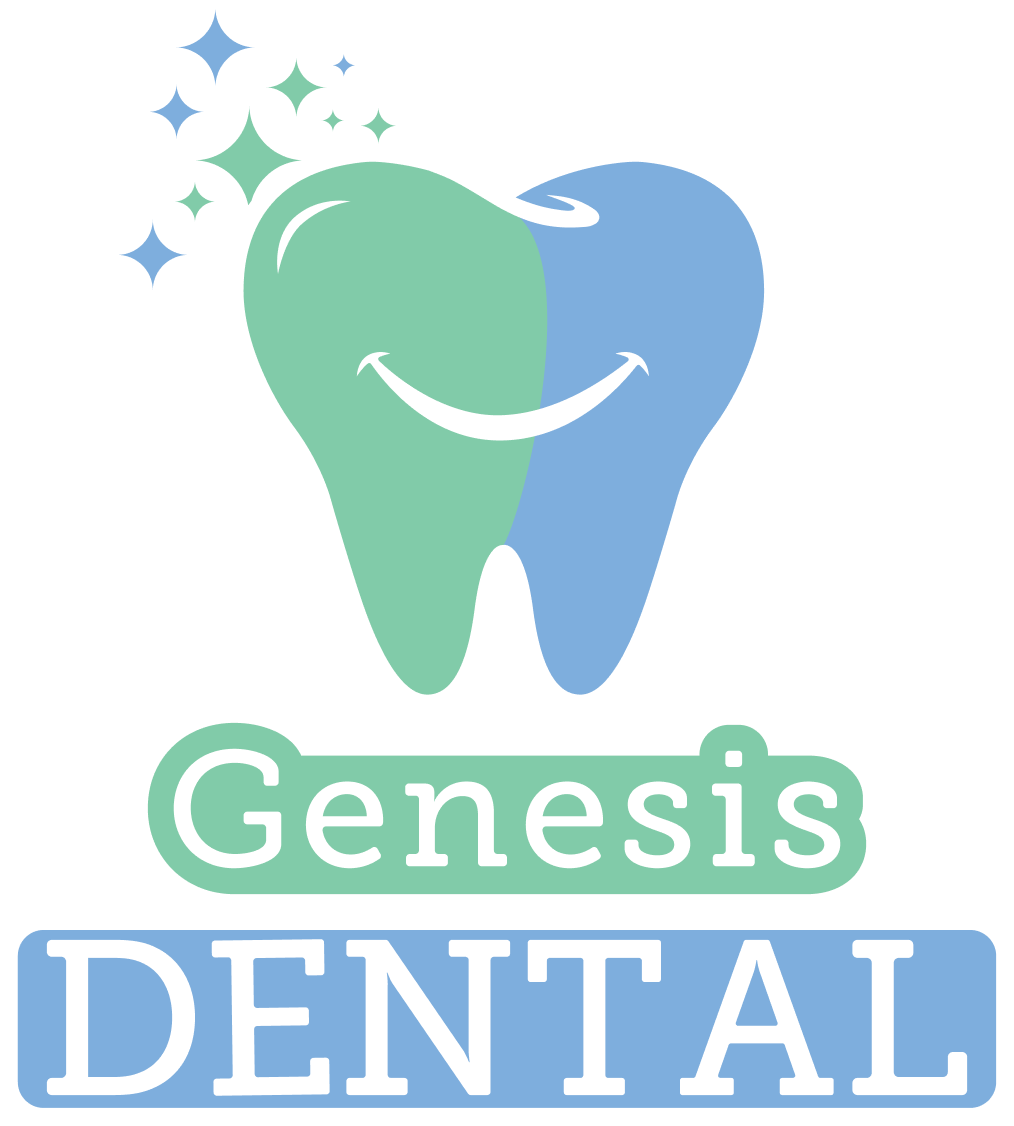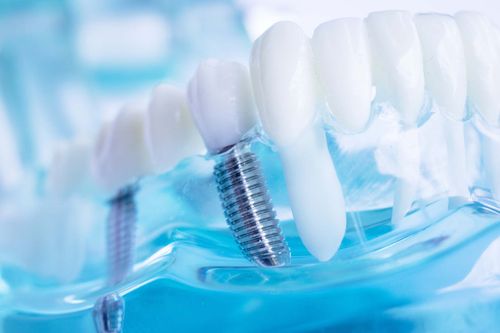Achieve a Lasting, Natural Smile
Losing a tooth can feel overwhelming, but with modern dental technology, there are excellent options to restore your smile. One of the most effective solutions is a dental implant. At Genesis Dental, our Flower Mound, TX dentist is dedicated to restore and enhance your smile with dental implants.
If you’re in Flower Mound, TX, or nearby areas like Highland Village, Lewisville, or Grapevine, Dr. Madeleine Zhao can help you reclaim your smile with quality care. Contact Genesis Dental today by calling (972) 355-2424.
Custom Prosthetics Built for You
Dental implants are a tooth replacement option that involves the surgical placement of small metal posts into the jawbone to support a natural-looking prosthetic. Their design mimics the look and function of natural teeth, providing individuals with a fully restored beautiful smile. Your Flower Mound dentist can use them to restore one or several missing teeth.
The dental implant process is a customizable treatment that generally includes four main steps applicable to all patients.
A dental implant is made of a biocompatible material, commonly titanium, allowing it to fuse with the jawbone over time naturally. This process, known as osseointegration, creates a strong foundation for the custom prosthetic. It also allows patients to achieve a natural-looking smile that can last a lifetime with proper oral hygiene care.
The Dental Implant Structure
A dental implant is made up of three key components:
- The Implant Post: This is the titanium screw that is surgically placed into the jawbone. It acts as the root of the new tooth.
- The Abutment: Once the implant has fused with the jawbone, an abutment is attached to the implant post. This small connector piece helps secure the replacement tooth.
- The Crown: The final piece is the crown, which is the visible part of the tooth. It’s custom-made to blend seamlessly with your surrounding teeth.
Benefits of Dental Implants
Dental implants offer numerous advantages, making them a popular choice for tooth replacement:
- Improved aesthetic appearance
- Enhance confidence
- A durable, long-lasting tooth replacement
- Improved speaking ability
- Better eating experience
- Improved oral health
- Preservation of the jawbone
- Easy maintenance
- Cost-effective solution
- Prevents shifting of surrounding teeth
- No food restrictions
- Better quality of life
- Maintaining oral hygiene to prevent dental implant failure
Who Qualifies for Dental Implants?
Dental implants are a popular solution for missing teeth, but not everyone is a candidate for dental implants. To determine if you are a good candidate for dental implants, you should schedule a consultation with an oral and maxillofacial surgeon. During this consultation, Dr. Zhao will evaluate your overall health, including your dental health, to determine if dental implants are right for you.
Types of Dental Implants We Offer in Flower Mound
Endosteal Dental Implants
The most common type of dental implant is endosteal. With endosteal dental implants, the post gets inserted directly into the bone and is used for those who have enough bone structure to support it.
There are various dental implant treatments available today. However, each dental office offers different options. To learn more about the options offered at Genesis Dental, contact our dentist today.
Single-Tooth Dental Implants
Single-tooth dental implants completely replace one lost tooth from root to crown. It involves the placement of a titanium implant into the jawbone that serves as the foundation for a custom-made prosthetic single-tooth replacement itself. Most patients receive a dental crown as the visible portion of their implant treatment. Single-tooth replacement with a dental implant provides patients with a permanent solution for missing or damaged teeth.
All-On-X or 24 Hour Smile
All-on-four dental implants are full-arch replacement options. It involves placing four dental implants in the upper or lower jawbone and securing a full arch of prosthetic replacement teeth to them. The All-on-four technique is less invasive and can be completed in one day. All-on-four implants are a good option for those who have lower bone density, as they allow for the restoration of a full arch of teeth while using fewer implant posts.
Implant-Supported Bridges
Implant-supported bridges are excellent options for replacing multiple teeth. A traditional dental bridge or artificial tooth root is anchored to the jaw using dental implants. The bridge is typically made up of two or more artificial teeth that are connected and attached to the implant abutments. The number of posts needed will vary depending on the size of the bridge.
Implant-Supported Dentures
Implant-supported dentures are removable appliances anchored to the mouth and jaw using dental implants. They provide a more secure fit and eliminate messy adhesives that removable dentures typically need. Implant-supported dentures are also a more stable option than traditional dentures and can improve overall oral health by providing stimulation to the jawbone.
Mini Dental Implants
Mini dental implants are a smaller version of traditional implants. They’re a less invasive implant surgery option typically used to replace a single tooth or stabilize a loose denture. They shorten the healing process and have a lower cost. However, they may not be suitable for patients who don’t have adequate bone density.
Immediate-Load “Same Day” Dental Implants
Immediate-load dental implants, also known as same-day implants, are done in one appointment. With immediate-load implants, dentists place the implant and prosthetic tooth in the mouth at the same time, allowing the patient to leave the dental office with a fully functional replacement tooth after just one dental implant procedure.
Zygomatic Dental Implants
Zygomatic dental implants can restore lost teeth for patients who don’t have enough jawbone density to support a traditional endosteal implant. While zygomatic implants are still in use, they’re less common today and aren’t used by our [Location] dentist.
Subperiosteal Dental Implants
Subperiosteal dental implants sit on top of the jawbone but under the gum tissue. Subperiosteal implants are rarely ever used because of modern technological advancements in the field of implant dentistry.
Our Procedure for Customized Care
Getting a dental implant typically involves several steps:
- Consultation and Planning: Dr. Zhao will assess your oral health, take X-rays, and create a treatment plan tailored to your needs.
- Implant Placement: During a minor surgical procedure, the implant post is placed into your jawbone using local anesthesia to ensure patient comfort. Over the next few months, the implant will fuse with the bone in a process called osseointegration. This step is a form of oral surgery requiring advanced training and precision.
- Abutment Placement: Once the implant has successfully fused with the bone, an abutment is attached to hold the crown securely.
- Crown Placement: Finally, a custom-made crown is attached to the abutment, completing the restoration and giving you a fully functional and natural-looking tooth.
Aftercare and Support
After dental implant surgery, it’s essential to follow your oral and maxillofacial surgeon’s instructions for aftercare and support. This will help ensure that your implant heals properly and that you experience minimal discomfort.
Here are some tips for aftercare and support:
- Follow a soft food diet for several days after surgery
- Avoid smoking and chewing tobacco
- Avoid biting or chewing on hard objects
- Brush and floss your teeth gently
- Attend follow-up appointments with your oral and maxillofacial surgeon
- Take pain medication as directed by your surgeon
It’s also essential to have a support system in place after dental implant surgery. This can include:
- A friend or family member to drive you home after surgery
- Someone to help you with daily tasks, such as cooking and cleaning
- A support group or online community to connect with others who have had dental implant surgery
The Cost of Dental Implants
The cost of dental implants can vary depending on several factors, including the number of implants needed, the complexity of the procedure, and the location of the oral and maxillofacial surgeon.
On average, the cost of a single dental implant can range from $1,000 to $5,000. However, this cost does not include the cost of the artificial tooth or crown, which can add an additional $500 to $2,000 to the total cost.
Dental insurance may cover some or all of the cost of dental implants, depending on the type of insurance you have and the specific policy. It’s essential to check with your insurance provider to determine what is covered and what is not.
What’s the Best Implant Treatment Option for You?
You’ll want to consider your individual dental needs and smile goals when determining the best dental implant treatment. Factors such as the number of missing teeth, the condition of your jawbone, and your budget all play a role in determining the best option. When weighing your options, you should also evaluate the dental implant benefits and costs. Dr. Zhao can help you evaluate your options and make a recommendation. For patients with dental issues such as decay or infection, preliminary treatments like tooth extraction may be necessary to ensure optimal conditions for the success of the implants.
If you’re wondering where to start, find out how to find the best dental implant provider for you and your needs.
Dental Implant FAQs
Does a missing tooth need to be replaced?
Yes, a missing tooth needs to be replaced as soon as possible. By not reversing tooth loss, you may experience:
- Shifting of the surrounding teeth: When you experience tooth loss, the surrounding teeth may shift to fill the gap. Shifting teeth can lead to misalignment and bite problems.
- Bone loss: The jawbone needs stimulation from the roots of the teeth to maintain its density. When a tooth is missing, the jawbone may shrink, leading to bone loss.
- Increased risk of periodontal disease: Missing teeth can create space for bacteria to accumulate, increasing your risk of gum disease.
- Difficulty speaking and eating: Missing teeth can make it difficult to speak clearly and chew food properly.
Who is qualified to place a dental implant?
A few different types of dental professionals can place dental implants, including:
- An Oral and Maxillofacial Surgeon: Dental professionals who have completed additional training and education in the surgical placement of dental implants. They have the most extensive training and experience in implant placement and are often considered the most qualified to place them. Oral and maxillofacial surgeons undergo extensive training, including dental and medical degrees, to perform complex procedures efficiently.
- A Periodontist: Specializes in the treatment of periodontal disease and placing dental implants. They have completed additional training in implant placement and have a good understanding of the underlying bone and tissue structure.
- A Prosthodontist: Specializes in the replacement of missing teeth and the restoration of natural teeth. They’re also qualified to place dental implants.
- A General Dentist: They’ve completed training in implant placement and are qualified to place them.
Oral and maxillofacial surgery involves specialized training and qualifications, including board certification and dual degrees. Certifications and qualifications vary based on the country, state, or region. Some states or countries may have different laws and regulations regarding who’s qualified to place dental implants.
How long do dental implants last?
On average, dental implants can last for between 20 years and a lifetime. To increase the long-term success of your dental implant, maintain excellent at-home dental care and schedule regular dental visits for checkups and cleanings.
Restore Your Smile at Genesis Dental
Dental implants are a fantastic solution for anyone looking to restore their smile after losing a tooth. They offer durability, comfort, and a natural appearance, making them a top choice for tooth replacement. If you’re in Flower Mound, TX, or the surrounding areas like Highland Village, Lewisville, or Grapevine, Dr. Madeleine Zhao at Genesis Dental is here to guide you through the process.
With quality care and a personalized approach, you can look forward to a restored smile that will last a lifetime. Schedule your consultation today by calling (972) 355-2424 to learn more about how dental implants can benefit you.

